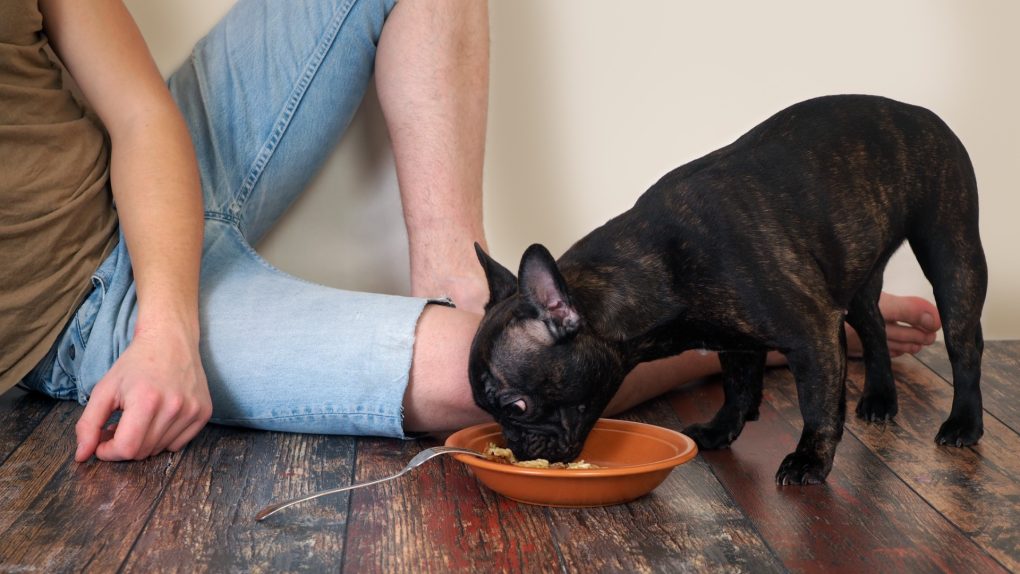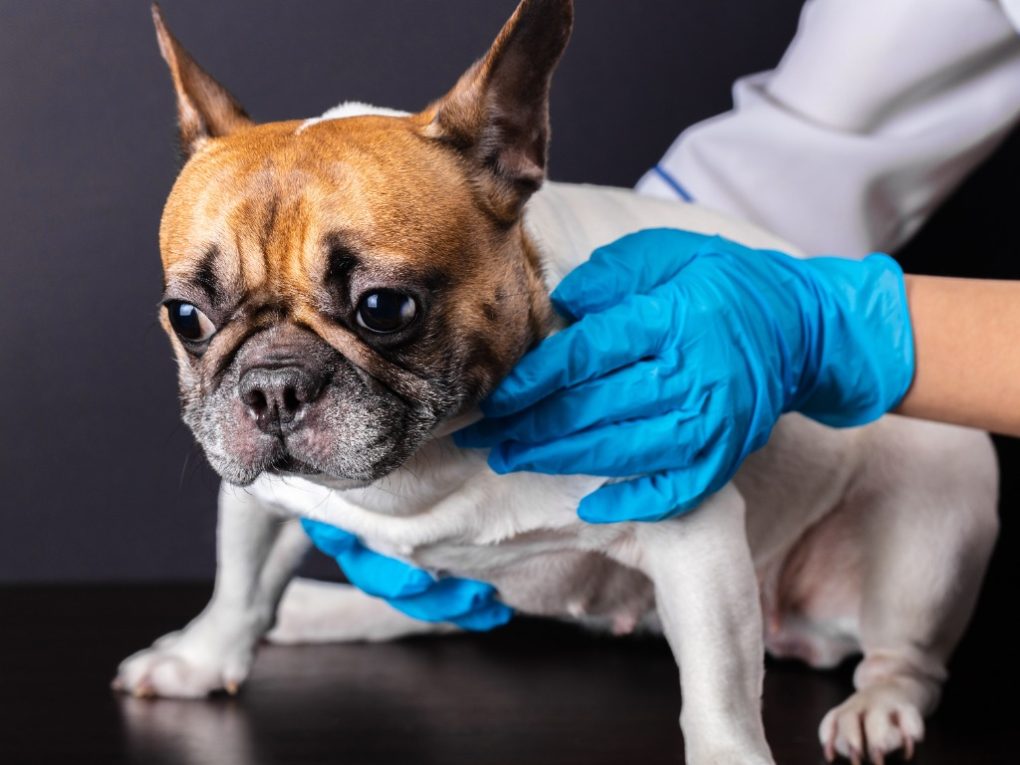How Many Times Do French Bulldogs Poop? A Comprehensive Guide
French Bulldogs, like other dog breeds, have varying poop frequencies based on age, diet, and activity level. A healthy French Bulldog will poop 1 to 5 times daily.


Monitoring your dog’s bowel movements is important, as consistency and frequency can provide insights into their overall health. Diet, activity level, and individual metabolism can influence how often your French Bulldog poops. If you notice any sudden changes in your dog’s bowel movements, it might be worth consulting a veterinarian for advice.
Table of Contents
Frequency of Pooping
French Bulldogs, like any other breed of dogs, have unique pooping frequency. Generally, an adult Frenchie should poop at least once daily, an average of two times daily. However, it is normal for them to poop up to three times per day. If your Frenchie is not pooping at all or is pooping more than five times a day, it is best to consult a veterinarian as it could be a sign of a health problem.
Age is important in determining how often a French Bulldog should poop. Puppies tend to defecate and urinate more often than adult Frenchies. As they grow older and their digestive system matures, their toilet routine stabilizes, and they poop less frequently.
Diet also plays a significant role in determining the frequency of pooping. A Frenchie’s diet should be balanced and nutritious, with the right fiber and protein. If a Frenchie eats too much or too little, it can affect their bowel movements. High-quality dog food that is low in salt content and free from fillers and additives is recommended.
Constipation is a common digestive issue that can affect French Bulldogs. It can be caused by dehydration, lack of exercise, medication, or a sensitive stomach. If a Frenchie is constipated, it may strain to poop, and their poop may be hard and dry. On the other hand, runny poop can be a sign of digestive tract problems, infections, or parasites.
Overall health, including the pancreas and liver, can also affect a Frenchie’s pooping frequency. If a Frenchie is overweight, it can affect their energy level, metabolism, and bladder control. Young puppies with big appetites may need to poop more frequently.
In hot weather, Frenchies may need to poop more often as they drink more water. However, if a Frenchie is pooping more than usual and has diarrhea, it could be a sign of an upset stomach or anxiety. Separation anxiety can also cause a Frenchie to poop more frequently than normal.
It is essential to provide proper nutrition, exercise, and care to prevent health issues that can affect a Frenchie’s pooping frequency. Regular visits to the veterinarian can also help detect and treat medical issues such as urinary tract infections and bladder stones. Training a Frenchie to use a pee pad can also help with their bladder control, especially during high activity or when they are left alone for long periods.


Stool Consistency and Color
Examining their stool is one of the best ways to determine if your French Bulldog is healthy. The ideal stool should be chocolate brown and a little firm in consistency. If the stool is runny, too hard, or has a different color, it could be a sign of a digestive or other medical issues.
Diarrhea is a common problem in French Bulldogs, and it can be caused by various factors such as infections, parasites, or a sensitive stomach. If your Frenchie has diarrhea, it’s important to ensure they stay hydrated and consult a veterinarian if the problem persists.
On the other hand, if your French Bulldog is constipated, it could be a sign that they’re not getting enough fiber in their diet or that they’re not drinking enough water. Adding fiber-rich foods to their diet, such as rice or high-quality dog food, can help regulate their digestive system and prevent constipation.
Pay attention to the smell of your Frenchie’s feces is also important. If it has a strong or unusual odor, it could be a sign of a digestive tract problem or an infection. If you notice blood or worms in your Frenchie’s stool, it’s important to seek veterinary care immediately.
In addition to diet and digestion, other factors can affect your French Bulldog’s stool consistency and color. For example, hot weather can cause dehydration and lead to runny poop. High activity levels can also affect digestion and cause changes in stool consistency.
Paying attention to your French Bulldog’s stool can provide important clues about their health. If you notice any changes in their stool consistency or color, it’s important to consult a veterinarian to rule out any underlying medical issues.
Causes of Abnormal Pooping
French Bulldogs are known for their unique bowel movements, which can vary in frequency, consistency, and color. However, if a French Bulldog is pooping more or less than usual, or if the poop appears abnormal, it could indicate various medical issues. Here are some of the most common causes of abnormal pooping in French Bulldogs:
- Health issues: Various medical issues can cause abnormal pooping in French Bulldogs, including diarrhea, constipation, digestive tract problems, infections, urinary tract infections, bladder stones, and more. If a French Bulldog is pooping more or less frequently than usual, or if the poop appears abnormal, it is important to consult a veterinarian to rule out any underlying health issues.
- Dietary factors: What a French Bulldog eats can also affect their bowel movements. A diet that is too high in fiber can cause constipation, while a diet that is too low in fiber can cause diarrhea. Additionally, certain foods, such as pears, milk, or high-salt content foods, may not agree with a French Bulldog’s sensitive stomach. Therefore, feeding a high-quality dog food appropriate for a French Bulldog’s age, weight, and overall health is important.
- Dehydration: If a French Bulldog is not drinking enough water, it can lead to dehydration, which can cause constipation and other digestive issues. It is important to ensure that a French Bulldog has access to clean, fresh water at all times, especially during hot weather or high activity levels.
- Stress and anxiety: French Bulldogs are sensitive dogs easily stressed or anxious. This can cause digestive issues, including constipation, diarrhea, and upset stomach. Therefore, it is important to provide a calm and comfortable environment for a French Bulldog, and to address any underlying anxiety or separation anxiety issues.
- Medications: Some medications can cause digestive issues in French Bulldogs, including diarrhea, constipation, and upset stomach. If a French Bulldog is on any medications, it is important to consult a veterinarian to determine if they could be causing the abnormal pooping.
Various factors can contribute to abnormal pooping in French Bulldogs, including health issues, dietary factors, dehydration, stress and anxiety, and medications. If a French Bulldog is experiencing abnormal pooping, it is important to consult a veterinarian to determine the underlying cause and to develop an appropriate treatment plan.


When to See a Veterinarian
If a French Bulldog is experiencing any abnormal bowel movements or signs of digestive issues, it may be time to see a veterinarian. Some signs to look out for include:
- Consistently constipated or runny poop
- Blood in stool or vomit
- Worms in stool
- Unusual smell or color of feces
- Decreased appetite or excessive thirst
- Dehydration
- Lack of bladder control or urinary tract infections
- High activity level or lethargy
- Sensitive stomach or allergies to certain foods
- Digestive issues such as pancreatitis or liver problems
- Separation anxiety or stress-related digestive problems
- Medications or changes in diet that may be causing upset stomach
If a French Bulldog is experiencing any of the above symptoms, it is important to seek medical attention from a veterinarian as soon as possible. In addition, the veterinarian may recommend various tests and treatments, such as stool analysis, blood tests, or dietary changes.
It is also important to note that young puppies may have more frequent bowel movements due to their developing digestive systems. However, if a puppy is consistently experiencing diarrhea or constipation, it may be a sign of a more serious issue.
